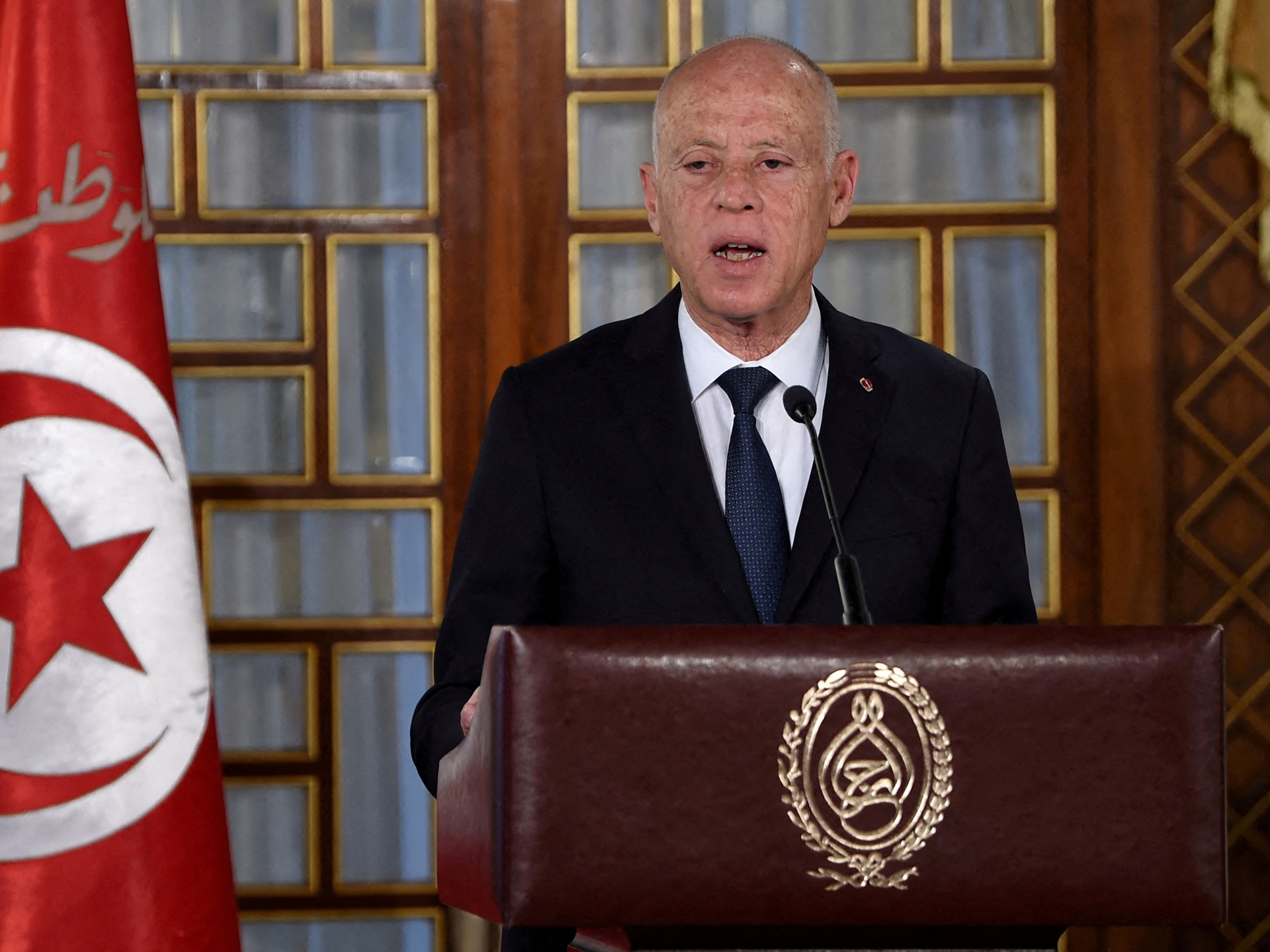Detentions come amid a wave of arrests targeting politicians and other critics of the government.
Tunisian police have arrested two more prominent opponents of President Kais Saied and the head of a radio station that has broadcast criticism of the president.
The detentions on Monday come amid a wave of arrests targeting politicians and other critics of the government.
Police raided the house of Noureddine Bhiri, a senior official in the biggest opposition party Ennahdha and a prominent critic of Saied, and took him away, his lawyer Samir Dilou told Reuters news agency.
“The police stormed Noureddine Bhiri’s house, assaulted his wife, and arrested him,” Dilou said.
Bhiri was held for two months last year, accused of helping armed fighters travel to Syria during the ISIL (ISIS) offensive, charges he and Ennahdha denied.
Ennahda condemned the “kidnapping of Saied’s opponents”, saying in a statement that “the expansion of the coup authority in harassing opposition figures, journalists, businessmen and trade unionists is evidence of confusion and inability to face crises”.
Authorities also raided the house of Mosaique FM head Noureddine Boutar and arrested him after searching his home, his lawyer Dalila Ben Mbarek said.
Political activist and lawyer Lazhar Akremi was also arrested, lawyers and opposition activists said.
Since Saturday, police have detained numerous figures who have voiced opposition to Saied or sought to mobilise protests against him.
They included a prominent business leader with close ties across the political spectrum, a former finance minister, another former senior Ennahdha official, two judges and a former diplomat. Lawyers said they were arrested on suspicion of assaulting state security.
Neither the police, interior ministry nor the prime minister’s office have publicly commented on the arrests.
In July 2021, Saied shut down parliament, dismissed the government and moved to rule by decree before rewriting the constitution, moves his critics called a coup that pulled apart the democracy built after a 2011 revolution.
Saied has denied a coup, saying his moves were legal and necessary to save Tunisia from chaos. State television has largely stopped broadcasting interviews with critics of the president.
